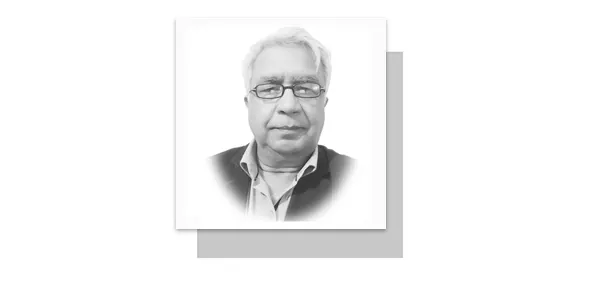IN their seminal work, Paul and Elder define critical thinking as the ability to evaluate, apply and synthesize information derived from observation, experience or communication. Their ideas echo Bloom’s Taxonomy which emphasizes memorization, understanding, application, analysis, synthesis and creation of knowledge as the ultimate goals of education. These principles underscore the core purpose of education: fostering intellectual growth and problem-solving skills. Unfortunately, in Pakistan, these foundational goals are alarmingly absent at the secondary and intermediate levels of education.
Despite the tireless efforts of students at these levels to earn high marks and secure degrees, critical thinking and analytical skills are glaringly absent from their learning journeys. This deficiency becomes painfully evident when students are thrust into real-life situations that demand problem-solving and critical analysis. The root cause lies in an outdated education system—a relic of the colonial 19th century—designed to produce compliant clerks rather than independent thinkers. There are the complaints from the employers that our graduates can not apply their knowledge to the job requirements and some even cannot produce a few sentences about their acquired skills. The students, who are ostensibly high achievers in higher secondary examinations, fail to qualify for admissions to higher professional education because of their miserable performance in the entry tests.
While elite private schools in Pakistan emphasize critical thinking and problem-solving, aided by modern exams that test mental capabilities, public-sector institutions lag behind. In government schools and colleges, exams focus on rote memorization rather than analytical skills. As a result, students from these institutions struggle with university entry tests or job assessments, even with high marks on their degrees. Graduates from elite schools excel in leadership roles, while those from public-sector institutions must re-learn skills at workplaces or undergo extensive training. Educational institutions should equip students with life skills, job skills and social skills during their studies. The absence of these essentials limits society’s ability to meet the demands of a high-tech, competitive 21st-century world. This gap in education needs urgent attention for Pakistan to foster graduates capable of thriving globally and contributing meaningfully.
This disparity between elite and public-sector education perpetuates inequality, leaving the majority of students ill-equipped to compete on a global stage. At the bachelor’s level, the problem persists. Despite curricula that ostensibly aim to teach critical thinking, untrained teachers and outdated teaching methods fail to deliver these skills. As a result, students graduate with vast amounts of theoretical knowledge but lack the ability to analyze, synthesize and apply it to real-world challenges. In developed countries, education prioritizes analytical and problem-solving skills, preparing students to tackle complex challenges in their academic, professional and personal lives. Pakistan must adopt a similar approach. As we move deeper into the 21st century, it is imperative to focus on producing graduates who can compete globally and contribute meaningfully to society. And if we still shun from our responsibilities to prepare a useful next generation, as we have done in past, we are going fail miserably at the global scenario.
Reforming Pakistan’s education system requires immediate and comprehensive action on multiple fronts. First, Classrooms must shift from passive learning to active engagement. Practical, task-based education should replace rote memorization, encouraging students to apply theoretical knowledge to real-world scenarios. Second, teachers play a pivotal role in transforming education. Comprehensive training programs must equip them with modern teaching methodologies that foster critical thinking and problem-solving skills. Third, Current exam formats focus excessively on memory recall. Question papers must be redesigned to evaluate students’ understanding, analytical skills and ability to apply knowledge. This shift will ensure alignment between learning goals and assessment methods. Fourth, Syllabi must be overhauled to reflect the needs of the 21st century. The focus should be on developing skills that enable students to think critically, solve problems and adapt to an ever-changing world.
Paulo Freire, the renowned philosopher and educator, argued that education should empower students to question and think critically about their surroundings. Without this, education risks producing subservient individuals rather than independent, free-thinking citizens. For Pakistan to thrive, its classrooms must become environments where students are encouraged to analyze, question and apply their knowledge to real-world issues—whether at the workplace, in socio-political spheres, or in everyday life. The need for educational reform in Pakistan is urgent. Public-sector institutions must prioritize teaching life skills, analytical thinking and problem-solving abilities to bridge the gap between Pakistani graduates and their global counterparts. Only by addressing these systemic flaws can we produce a generation of graduates who are not only academically accomplished but also capable of meeting the challenges of the modern world. The time to act is now. By investing in education reform, Pakistan can unlock the potential of its youth and pave the way for a brighter, more prosperous future.
—The writer is a Professor of English at Emerson University, Multan, and has a vast international exposure.









